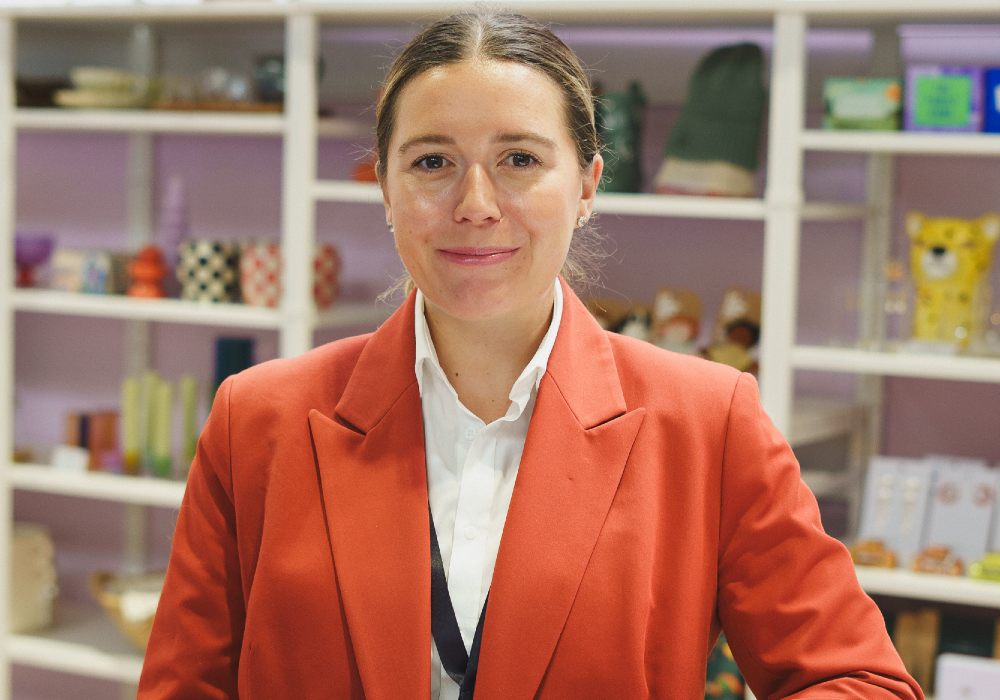
Charlotte Broadbent, general UK manager at Faire, the online wholesale marketplace, shares her top retail predictions for 2025.
The challenges of the past few years, from the aftermath of the pandemic to ongoing economic uncertainty and the rising cost of living, have made the UK’s independent retailers more resilient and adaptable than ever before.
While some measures of UK consumer sentiment are showing a positive improvement as we head into 2025, there will undoubtedly be more challenges and changes for small retail businesses to navigate over the coming year.
However, this could also provide new opportunities if shop owners are willing to embrace new tools, trends and cultural changes, covering everything from the continuing rise of AI and new shifts in online and offline spending, to more adjustments in the way we work. Here’s how independent retailers can make sure they are ready to rise to the occasion.
Clicks to bricks as shoppers will rediscover the joy of in-store shopping
We heard John Lewis’s former chairman Dame Sharon White explain earlier this year that its online sales have steadily been declining since the pandemic in favour of physical spending. And it resonated, because the return of more in-person shopping is something we’re also hearing from the small retailers Faire works with, as shoppers get back into the habit of going into stores and businesses work even harder to get people through their doors.
Ecommerce is undoubtedly shifting the shopping landscape all the time, but it is also helping to drive a growing demand for more personal and meaningful shopping experiences that can’t be found online, however hard you look. Independent retailers are perfectly positioned here thanks to their closer links with their communities, stronger relationships with customers, and more unique products and experiences. Faire even helps its retailers secure exclusivity in their postcodes, because we know how important this differentiation can be.
But ensuring retailers are ready for increasing footfall is also going to be crucial if they want to truly utilise this trend. Nothing is more frustrating or more likely to drive customers back online than an empty shelf or missing options.
Retailers will become their best influencers
One of the most unique things about independent retailers is the people behind them. As shop owners seek to build stronger relationships with their customers over the next year, I think we’ll see more of them prepared to show their faces and share their stories to create closer connections.
This is important for shoppers who increasingly want to know the person and the story behind the brand before they part with their cash. Often it can be as much about the shop owner as it is about their product when it comes to spending money. But it can be daunting for busy retailers who are more comfortable behind the camera than in front of it.
Kate, the owner of Happy & Glorious in Canterbury, is a brilliant example of a small shop owner putting herself and more of her personality out there for the first time this year, with weekly Instagram lives where she talks through her store and product ranges. This is something that can be tricky to start, but it’s certainly having an impact on her customer engagement, relationships and sales.
I’ve always said that independent retailers are the original influencers, and more and more are now putting this into practice by embracing social media and in-store events. Customers are drawn to authenticity, and it’s these real connections that will make all the difference going into 2025.
Where we work will change how we shop
There’s no denying that a rise in remote working has impacted how we see our local high streets and shops, with many of the independent retailers Faire works with flourishing over the last few years as a result of more of us being able to visit businesses closer to home more easily. Backing this up is vacancy data we saw last year from Savills, showing much lower vacancy rates in the capital’s high streets outside of central London in comparison to 2019.
But now, major employers are driving a return to the office in 2025. Just look at Amazon staff, who will go back full-time for the first time since the pandemic. PwC, Asda, Starling and Santander are among other businesses to have recently tightened up how often their employees can work from home, and we should expect more companies to do the same over the coming months.
Local high street shops that have experienced an uptick in weekday lunchtime and after-work visitors will have to adjust as a result. Other than footfall challenges during the working week, they will need to have even more reasons to be driving people into the store. Weekend visits may become more important, or we could see more independent retailers increasing their opening hours and adjusting their staffing rotas to accommodate commuters.
AI will put small shops on an equal footing with retail giants
AI is now much more than a buzzword for businesses big or small. Over the past year, I’ve seen it become fully integrated into the day-to-day operations of the independent retailers Faire works with. As more businesses adopt the right tools, this will help to level the playing field for the owners of smaller shops against their much larger competitors in the year ahead.
For example, many small shop owners without the luxury of large marketing teams have already started using ChatGPT to save time on marketing and merchandising strategies, customer emails, and to reword product listings. AI will enhance more and more of the work they do in this way, whether it’s their point-of-sales system, data on when they need more or less staff, and the integration of their accounting systems with the tills and marketing systems they’re using.
By saving this time and helping businesses work smarter, AI is giving small retailers many of the same advantages as the big retailers and we should continue to see it being used in new and innovative ways throughout 2025.
Community-led retail will rule 2025
This year I’ve seen some brilliant examples of independent retailers rallying their communities to ‘shop local,’ whether it’s the winner of our Open with Faire competition – Laura from Fond Shop Lymm – who organised a treasure hunt to boost engagement across her high street this Christmas, or The Prior in Bristol, which delivered a heartfelt plea to local people to ‘vote with their wallet’ to ensure it survives 2025.
Small shops everywhere are increasingly embracing the power of the community to drive awareness and customer loyalty, because they know it really strikes a chord among shoppers who also want to preserve the uniqueness and vibrancy of their local areas.
Across 2025, we should expect more businesses to adopt this approach by working together, engaging local people, and coming up with fantastic new ways to demonstrate that when local businesses can thrive, the entire community will benefit.











